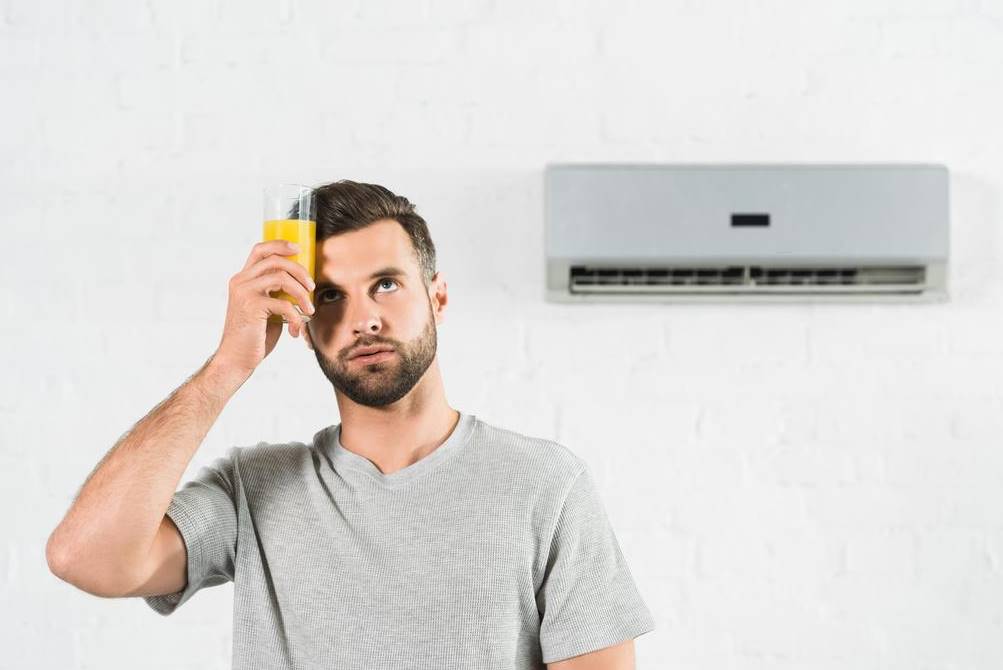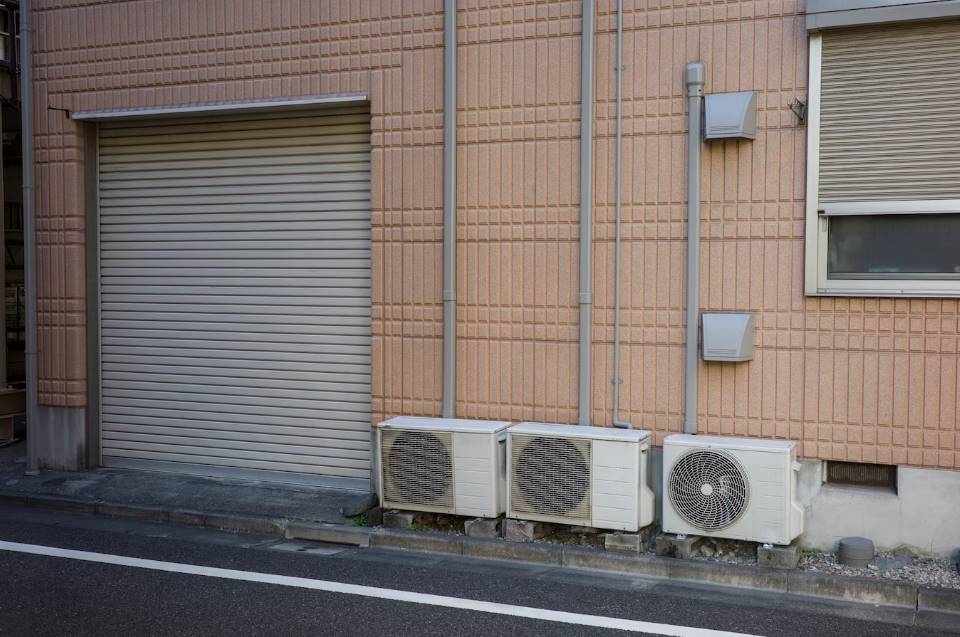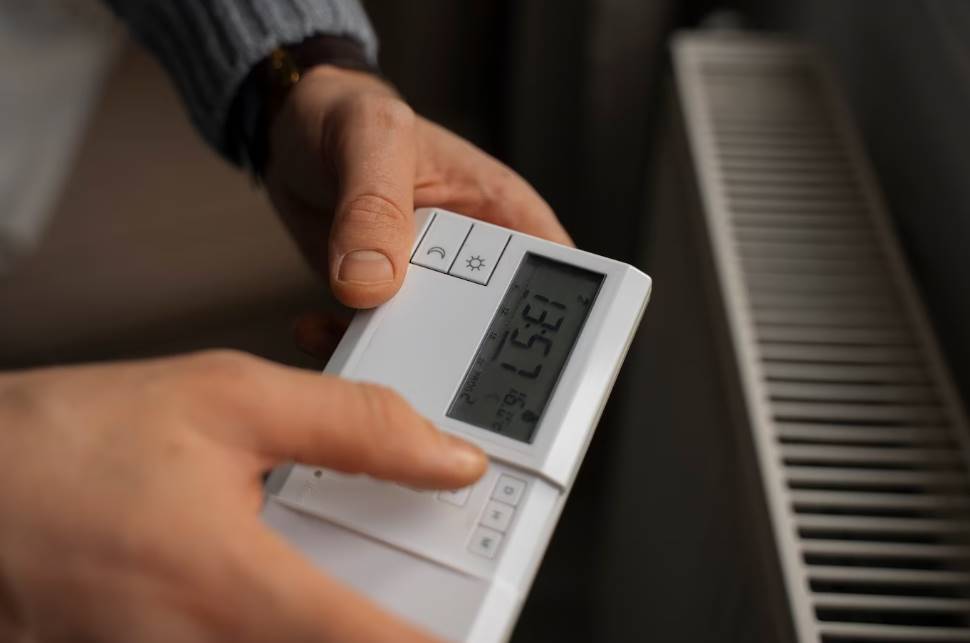The humble HVAC system is crucial in today's environment when convenience and comfort are valued above all else. We owe a great deal to HVAC systems, which keep us warm in the winter and cool us down in the summer.
In this piece, we will take you on a deep dive into HVAC systems, explaining their function and significance in easy-to-understand and use language.
What is HVAC?
First, let's cover the fundamentals. Ventilation, Heating, and Air Conditioning is an abbreviation for these systems. A building's HVAC system controls the structure's ventilation, airflow, temperature, and air conditioning. Even if you can't see the machinery, you'll immediately notice how much better it is to work here.
Office heating and cooling are two of the biggest energy drains, so it's important to know how they work and where you can improve their efficiency to save money.
Buildings and undertakings that neglect these mechanical components are doomed to failure.
A Heating Element
An HVAC system employs a heat source, such as a furnace, boiler, or heat pump, to warm an interior space. The apparatus might be set to monitor a specific area or the entire structure.
Electricity, propane, heating oil, and natural gas are only some of the fuels heating appliances can use to provide the desired heat.
Data centre heating is typically not a top priority, but in colder climates, protecting exterior equipment and components like chillers from the elements is necessary.
HVAC heating can be done in several ways. For example:
- Boilers use combustion to bring water to a high enough temperature to produce steam or hot water. Modern condenser boilers recover exhaust heat, making them more energy-efficient.
- Space heaters that employ warm air are common in large buildings like warehouses, retail sheds, and sports facilities. They heat the air with a gas or oil burner and then circulate it with a fan. The most effective models have condensing features and optimisation controls like a typical boiler plant.
- Storage electric heaters take advantage of cheaper electricity rates at night and release their stored heat during the day, making them a popular choice in areas without access to mains gas. More efficient insulation and more automated controls are only two ways modern storage heaters reduce power use.
- Solar thermal systems employ a dark-coloured solar collector to attract solar radiation and convert it to heat for water heating. Systems typically need a lot of room. Hence, they are typically installed on the tops of buildings near the ships' hold areas.
Ventilation
Ventilation is the HVAC system's unsung hero if it's working properly. It keeps the air circulating and the stale air out. By removing unpleasant odours and harmful pollutants, this exchange helps to keep your indoor air clean and healthy.
For HVAC to work properly, it needs a well-thought-out ventilation system. Heating and cooling systems rely on ventilation to keep air moving through a building, but ventilation is a distinct mechanism.
It also functions as an air exchanger, constantly replenishing the air supply with new air from outside. Depending on the heating and cooling system used, ventilation may also filter the air and keep humidity at a comfortable level.
Data centres rely heavily on air cooling and ventilation to maintain a stable temperature for their IT hardware. Depending on the hardware housed within and the facility's design, data centres may use one of several ventilation and cooling methods.
There are three main ways to ventilate a commercial building:
- Simply opening a window or door allows outside air to enter a room, completing the process known as "natural ventilation."
- Air handling units (AHUs) supply, package, and extract air and reuse the conditioned air in the structure.
- Fans, either supply or extract, are common components of ventilation systems that move air through ducts and plenums to ventilate a building or other enclosed area.
Air Conditioning
As the heat of summer rises, your home can become a cool haven thanks to your HVAC system. In extremely hot weather, the air-cooling component of HVAC is essential. Removing excess heat from the indoor air via a refrigeration cycle creates a cool and relaxing environment.
An HVAC system will have some means of regulating the temperature of the air in the system. Different commercial spaces may take quite different approaches to cooling. Air conditioning equipment, for instance, might be installed anywhere, even inside the structure or on the roof. Water, rather than coolant, could be used to maintain comfortable temperatures.
In addition, it may help the ventilation system by filtering the air or regulating the humidity. To keep their IT infrastructure running smoothly, data centres rely extensively on air conditioning, employing various cooling and ventilation techniques.
In a general sense, two categories can be used to classify technology related to air conditioning and cooling:
- Systems that are centrally located typically have ties to an HVAC terminal. The building's heating and cooling equipment is housed in a single plant room, piping conditioned air to each room. These systems can improve climate control, energy efficiency, and load management, but they can be costly to set up and difficult to keep in working order.
- More suitable to contained settings, decentralised systems typically take the form of DX-type architectures, comprising a collection of modular, interoperable components. Depending on the context, these systems may have fewer initial investment expenditures, fewer pipe and ducting requirements, and a smaller footprint.
Although HVAC systems are separate entities, they function as a unified whole to achieve the desired environment within a building. Commercial HVAC systems have begun to automate and become more intelligent in recent years, combining cutting-edge technology like machine learning, deep learning, and predictive analytics.
Buying a new HVAC system or upgrading an old one doesn't have to be difficult, but it does require expert knowledge to make the best decisions for your company's current and future needs.
Selection of HVAC Equipment
Climate dictates that heating and cooling systems be installed nationwide in most buildings so residents can maintain a comfortable internal temperature. There are several elements to consider while making the design decision of what HVAC equipment to install in the school building, such as:
- The quantity and quality of outdoor air; Code compliance; Heating and cooling requirements; Energy efficiency; Humidity regulation; Natural ventilation potential;
- IAQ; and Expense.
Instead of using unit ventilators or separate heat pumps for each room, central HVAC air handling units (AHUs) should be used whenever possible. For indoor air quality (IAQ) in schools, the wide variety of air handlers available can be simplified into two categories: (1) unit ventilators and single-room heat pump units that do not require ductwork and (2) central air handling units that do.
Because they do not rely on ductwork to move air between rooms, heat pumps and unit ventilators save valuable square footage. Over time, many units are harder to maintain and can cause moisture issues from wall penetration, drain pan, and discharge. Comparing central air handling devices to room-specific ventilators and heat pumps, they have several advantages:
- Educators and administrators are more willing to keep them on due to their lower decibel levels;
- Multiple fuel sources and a remote return reduce draftiness;
- Improved ability to regulate humidity and remove collected moisture;
- less complicated to repair because there are fewer moving parts and fewer individual parts to check;
- Extra room surrounding furniture so that it can be moved without disrupting lessons;
- More room for sophisticated air filtration systems and surface area;
- Built with stronger materials, they are less prone to suffer a shortage of fresh air unintentionally.
Why Energy Efficiency Is Crucial
In today's environmentally conscious era, saving energy is a top priority. In this respect, HVAC systems have made great strides. Today's systems aim to provide maximum comfort with the least amount of energy use possible. Installing an energy-efficient HVAC system reduces your carbon footprint and saves money.
Ventilation systems with energy recovery should be considered.
Most HVAC designers know outdoor air is two to five times cleaner than indoor air. Therefore, more outdoor air is better for IAQ. Concerns have been raised, however, about the effects that bringing in a larger quantity of outdoor air has on the initial and ongoing costs of the HVAC system and the school's ability to maintain an appropriate humidity level.
Good indoor air quality need not be at odds with low initial investment, low energy use, or low humidity. With energy recovery ventilation technology, the drawbacks of using 15 cubic feet per person of outdoor air can be mitigated to the equivalent of using five cubic feet per person. In contrast, the IAQ benefit of using 15 cfm is maintained. Numerous schools in various locations have demonstrated the efficacy of this strategy by installing state-of-the-art HVAC systems, which are priced similarly to traditional systems yet result in substantial savings over time and improvement in indoor air quality.
Preventative Maintenance Increases Lifespan
Like any other piece of machinery, HVAC units need routine maintenance. Routine maintenance keeps your system functioning properly and increases its lifespan. To keep your HVAC system running smoothly, it is important to change clean ducts air filters, and have regular maintenance inspections.
What's the Difference Between HVAC and Air Conditioning?
What distinguishes air conditioning from heating, ventilation, and air conditioning (HVAC) is commonly raised in discussions of HVAC. Instead of asking how air conditioning works, enquiring about the HVAC system is more appropriate.
In contrast to popular belief, air conditioning is not separate from heating and ventilation systems (HVAC). Ventilation and air conditioning are complementary systems that operate together to control the temperature of the flowing air.
The Impact of HVAC on Your Health
You may not realise it, but your HVAC system affects your health. Inadequate humidity regulation can lead to skin dryness and respiratory difficulties. Mould and allergies are less likely to grow in a house with enough ventilation, making it a healthier place to live.
Conclusion
It is essential to do routine maintenance on an air conditioning unit in order to ensure that it will last as long as possible. This not only ensures that the machine is providing adequate cooling, but it also enhances the quality of the air within the building. With regular servicing, a well-maintained air conditioner has a lifespan that can range anywhere from fifteen to twenty years. It will save you money on your energy bills, it will prevent frequent breakdowns, it will increase your financial efficiency, and it will make sure that the temperatures inside are comfortable.
Changing the air filters, cleaning the condenser coils, inspecting the evaporator coils, cleaning the blower motors, lubricating the gears, checking the coolant levels, and removing debris are all components of routine maintenance. Air ducts that are not cleaned and maintained on a regular basis might lead to expensive repairs. In addition, doing routine leak checks can lengthen the system's lifespan. In addition to keeping the temperature at a suitable level, routine maintenance positively impacts the surrounding environment since it helps resolve issues more rapidly.
Content Summary
- The heating, ventilation, and air conditioning (HVAC) system is essential to the provision of comfort and convenience.
- Heating, Ventilation, and Air Conditioning are the three components that make up the HVAC system.
- Ventilation, airflow, temperature, and air quality are all under the control of HVAC systems.
- Efficiency in heating, ventilation, and air conditioning (HVAC) systems is absolutely necessary.
- Heating is provided by a variety of sources, including boilers and electric heaters, when it comes to HVAC systems.
- Ventilation is absolutely necessary in order to keep the air quality within a building at a healthy level.
- Air quality can be improved and maintained with the assistance of HVAC ventilation systems.
- Natural ventilation, air handling equipment, and fans are all examples of different types of ventilation.
- Air conditioning is a method of cooling indoor environments by removing excess heat from the air.
- Both air conditioning and cooling make use of a variety of technological approaches.
- Both centralised and decentralised HVAC systems are viable options.
- Machine learning and predictive analytics are only two of the cutting-edge technologies that are included into today's modern HVAC systems.
- The proper selection of heating, ventilation, and air conditioning (HVAC) equipment is contingent on considerations such as air quality, energy efficiency, and cost.
- When it comes to the quality of the air within a building and its upkeep, central air handling units are the way to go.
- In today's sophisticated HVAC systems, energy efficiency is absolutely essential.
- Energy recovery ventilation is one way to enhance the air quality inside a building while simultaneously reducing energy use.
- It is imperative that HVAC systems undergo routine preventative maintenance in order to ensure their longevity.
- Heating, ventilation, and air-conditioning, or HVAC, systems include both of these functions.
- In terms of humidity and air quality, HVAC systems can have an effect on a person's well-being.
- The operation of HVAC systems ensures that a building's interior remains at a reasonable temperature throughout the year.
- The installation of HVAC systems is essential to the process of making a living or working space comfortable.
- They are built to operate undetected in the background, assuring our comfort while avoiding drawing attention to themselves in the process.
- It is absolutely necessary for a building to have HVAC systems that are in good working order in order to maximise energy efficiency and minimise the expense of utilities.
- Heating elements in HVAC systems can draw their energy from a variety of sources, including electricity, propane, heating oil, and natural gas, amongst others.
- In certain HVAC configurations, solar thermal systems collect heat from the sun's radiation to heat water.
- In order to keep the air within a building clean and healthy, ventilation is an extremely important factor.
- By continuously exchanging the air within with air from outside, ventilation systems do their part to keep the air clean.
- Additionally, ventilation can filter the air and maintain the appropriate amounts of humidity.
- When it comes to keeping temperatures consistent for IT hardware, data centres rely on efficient cooling and ventilation systems.
- Fans, air handling units (AHUs), and natural ventilation are the three primary ways that are used for ventilating commercial buildings.
- The decision between centralised and decentralised heating, ventilation, and air conditioning (HVAC) systems is determined by considerations such as cost and energy efficiency.
- The performance of HVAC systems has significantly improved thanks to the use of machine learning and predictive analytics as recent technological advances have been made.
- When choosing HVAC equipment, it is important to take into account a variety of aspects, including energy efficiency, the quality of the air outside, and the quality of the air inside (IAQ).
- Central air handling units provide a number of benefits, such as improved humidity control and a more silent operation.
- When designing a heating, ventilation, and air conditioning (HVAC) system, one of the most important factors to take into account is energy efficiency.
- The method of energy recovery ventilation helps to strike a balance between IAQ and the saving of energy.
- The lifespan of HVAC systems can be extended with routine preventative maintenance, which includes changing the filters and performing inspections.
- A comfortable environment throughout the year is ensured by HVAC systems, which provide both heating and cooling.
- Dry skin and respiratory problems can be avoided by properly managing the humidity and air quality with heating, ventilation, and air conditioning (HVAC) systems.
- Mould and other allergens can be prevented from growing in indoor spaces by maintaining enough ventilation and air conditioning. This helps to create a healthier atmosphere in which people can live.
Frequently Asked Questions About HVAC Systems
HVAC stands for Heating, Ventilation, and Air Conditioning. It's a system that controls temperature, airflow, and air quality in buildings. It provides heating in the winter, cooling in the summer, and ensures proper ventilation year-round.
Ventilation is crucial because it maintains indoor air quality by circulating fresh outdoor air and removing stale air. It also helps control humidity levels and can filter the air, reducing pollutants and allergens.
HVAC systems can use various heating methods, including boilers, electric heaters, and heat pumps. The choice of heating method often depends on factors like energy source availability and efficiency.
Energy-efficient HVAC systems reduce energy consumption, which leads to lower utility bills for homeowners. Additionally, they have a smaller carbon footprint, helping to reduce environmental impact and combat climate change.
Regular maintenance is essential for HVAC systems to ensure they operate efficiently and have a longer lifespan. It includes changing air filters, cleaning coils, and inspecting components. Proper maintenance can prevent breakdowns and costly repairs.



